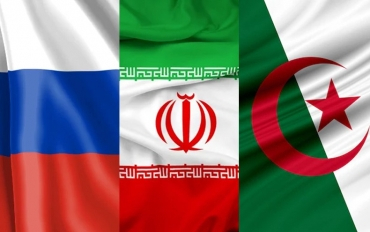Several EU reports and journalistic information reported by media outlets such as CNN and Le Monde indicate that the Algerian regime's intention is to facilitate the installation of Russian military bases in the Sahel with the help of Iran.
The Algerian regime is said to be receiving a significant supply of drones from Iran, which would go directly to the armed militia of the Polisario Front, a group that enjoys the Algerian authorities’ support, in its struggle against Morocco.
Iran, which operates in a similar way by supplying the terrorist group Hezbollah, intends to establish the most radical branch of its Islamism in the Sahel and Sahara, using the Algerian military system’s support.
Le Monde reported that the Algerian government had allowed the Wagner mercenary group (currently fighting in Ukraine under Putin's orders) to penetrate the Sahel to reach Mali. This presence led to France's departure from the African country and dealt a significant blow to the U.S.-led coalition to end terrorism in the region.
The Algerian government has become a firm ally of Russia, and it is estimated that it buys some $10 billion worth of arms from Russia annually, which would finance Putin's war against Ukraine. For the year 2023, Algeria plans to allocate $23 billion to arms purchases, more than half of which would be Russian-made.
In September 2022, the United States already expressed concern about Algeria's financing of Russia's war against Ukraine and called for sanctions against the North African country.
The military alliance has been reflected in recent times in the joint exercises, mainly maritime ones, conducted between the two countries in the Mediterranean.
Algiers has made its ports and ships available to Russia. It has also participated in other military exercises conducted by both countries in the past, both in the Caucasus and in Siberia, as well as in North Africa.
Jesús Sánchez Lambás, Vice President of the Coordinates Institute for Governance and Applied Economics, points out that the information available allows us to predict a double scenario of instability that would allow Russia to have a stranglehold on the European Union: Ukraine in the North and the Sahara in the South, aggravating the energy supply crisis.
While the humanitarian drama in the North focuses all US and EU political and media attention, the situation in the South is perceived as something distant and culturally alien to the West.
Western powers must anticipate the foreseeable catastrophe by strengthening their relations with the few reliable partners in the region, such as Morocco. It is getting late."
Latest Stories
-
Drake: AI Tupac track gone from rapper’s Instagram after legal row
34 seconds -
Repainting schools, changing uniforms a misplaced priority – Joy FM listeners on rebranding of basic public schools
6 mins -
UEFA U-16 Tournament: Black Starlets bounce back with 5-1 win over Serbia
25 mins -
There’s nothing strange about changing colours for basic public schools – Education Ministry PRO
36 mins -
Diana Asamoah causes arrest of personal assistant over GH₵4k MoMo theft
47 mins -
Our mindset should breed excellence – Ace Ankomah
59 mins -
SML fully delivered on Transaction Audit Service Agreement with GRA
1 hour -
Government trying to hide something from SML/GRA contract – Arthur Kennedy
1 hour -
Don’t encourage lateness and foolishness – Ace Ankomah to UG Vice Chancellor’s award winners
2 hours -
‘Obroni wawu’ traders plan to protest over Kumasi Central Market Redevelopment delays
2 hours -
Gold Fields Ghana boosts cocoa production in Huni Valley District through Cocoa Farmers’ Support programme
2 hours -
Spanish government to oversee football federation after Luis Rubiales scandal
2 hours -
TikTok will not be sold, Chinese parent tells US
2 hours -
Bawumia is ready to announce his running mate – Miracles Aboagye
2 hours -
Works and Housing Ministry launches BENCHH 2024
2 hours

